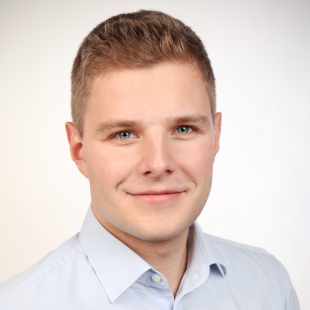
Konstantin Sonntag, MSc
Mitglied -
- E-Mail:
- konstantin.sonntag@uni-paderborn.de
- Telefon:
- +49 5251 60-4487
- Büroanschrift:
-
Technologiepark 21
33100 Paderborn - Raum:
- TP21.1.23
Publikationen
Ausgewählte Publikationen
First-order methods and gradient dynamical systems for multiobjective optimization
K. Sonntag, First-Order Methods and Gradient Dynamical Systems for Multiobjective Optimization, Paderborn University, 2025.
Fast Multiobjective Gradient Methods with Nesterov Acceleration via Inertial Gradient-Like Systems
K. Sonntag, S. Peitz, Journal of Optimization Theory and Applications (2024).
A Descent Method for Nonsmooth Multiobjective Optimization in Hilbert Spaces
K. Sonntag, B. Gebken, G. Müller, S. Peitz, S. Volkwein, ArXiv:2402.06376 (2024).
Fast Convergence of Inertial Multiobjective Gradient-Like Systems with Asymptotic Vanishing Damping
K. Sonntag, S. Peitz, SIAM Journal on Optimization 34 (2024) 2259–2286.
Inertial dynamics with vanishing Tikhonov regularization for multobjective optimization
R.I. Bot, K. Sonntag, Journal of Mathematical Analysis and Applications (2025).
Alle Publikationen anzeigen
